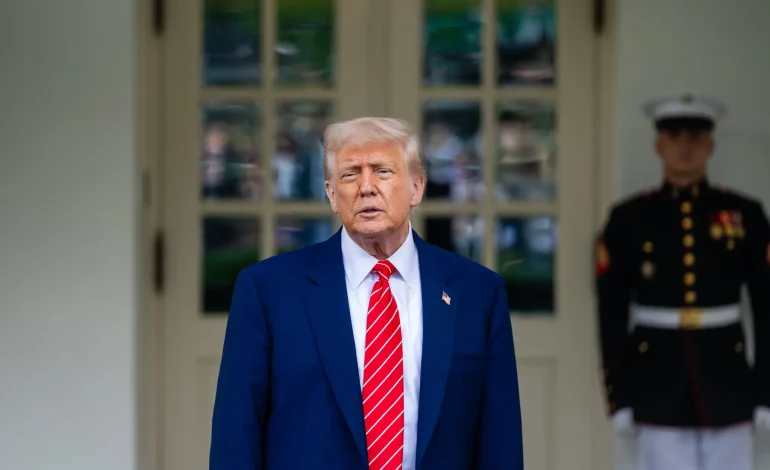As President Donald Trump begins his tour of the Middle East this week, American dominance in artificial intelligence chips is emerging as a critical tool of geopolitical influence, the New York Times reports.
In a region long defined by energy wealth, leaders are now turning their attention to Silicon Valley’s most prized commodity: advanced AI hardware.
Gulf nations such as Saudi Arabia, the United Arab Emirates (UAE), and Qatar are eager to invest billions in data centers powered by AI chips from US tech giants like Nvidia and AMD. These chips are essential for powering the supercomputers behind generative AI platforms, advanced analytics, and emerging applications in defense, healthcare, and finance.
However, access to this high-end technology remains tightly regulated by the US government. While the Biden administration had imposed sweeping controls on the export of AI chips, particularly to non-allied nations, the Trump administration appears open to a more transactional, deal-driven approach. Officials traveling with the president suggest that chip access could be linked to broader economic and diplomatic negotiations.
Commerce Secretary Howard Lutnick has floated the idea of integrating chip export permissions into trade talks, signaling a potential shift in how the US wields its technological edge. This strategy, according to people familiar with the matter, is intended to strengthen US influence while also benefiting domestic companies.
Executives from Nvidia, AMD, Alphabet, Microsoft, and OpenAI are expected to attend an investment forum in the region alongside US and Gulf officials. The event will spotlight American partnerships in AI and data infrastructure, and is likely to coincide with announcements of new business deals.
The Trump administration is also reviewing the Biden-era export control framework that categorized countries and capped chip sales to many of them, including Saudi Arabia and the UAE. While a replacement policy has not yet been finalized, internal discussions suggest a more flexible model based on direct negotiations and licensing. Under this system, foreign governments and companies would apply for chip export approvals on a case-by-case basis.
Some industry leaders support the shift. A Nvidia spokesperson said the change could position the US to lead “the next industrial revolution.” Critics, however, caution that abandoning strict rules could create uncertainty and allow sensitive technology to spread to actors with ambiguous strategic ties.
Former Commerce Department official Jim Secreto defended the prior restrictions, arguing they preserved US leadership and safeguarded national security.
“Who controls AI is the geopolitical question of our time,” he said.
Despite national security concerns, Trump’s approach signals a greater willingness to leverage technological assets for broader foreign policy goals. This includes encouraging foreign investment in the US. A recent Saudi proposal included $600 billion in investments over four years, while the UAE committed $1.4 trillion over the next decade, targeting areas like AI and semiconductor development.
Still, the administration’s approach has sparked debate. Some observers worry that decisions made behind closed doors could create inconsistencies or bottlenecks in chip availability. Others warn that countries like Saudi Arabia and the UAE, which maintain ties with China and Russia, may not be ideal long-term partners in shaping the future of sensitive technologies.
Sam Winter-Levy of the Carnegie Endowment for International Peace urged caution, citing concerns over espionage and political alignment.
“I would view them with skepticism as close partners in the development of a technology that could shape the balance of power in the next few years,” he said.










The latest news in your social feeds
Subscribe to our social media platforms to stay tuned